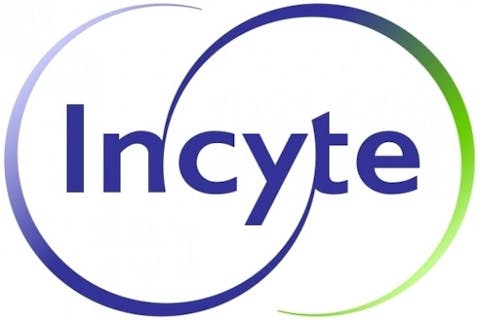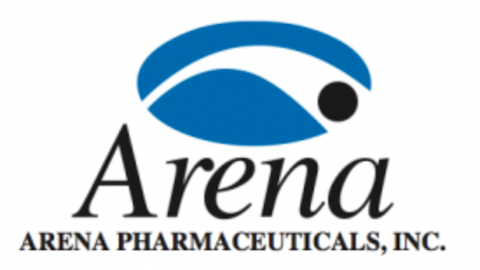Earlier this month, I wrote an article explaining that I liked Incyte Corporation (NASDAQ:INCY) on the basis of the blockbuster potential of its only approved drug, Jakafi, which is used in the treatment of intermediate or high-risk myelofibrosis. The company’s stock surged more than 20% after the Food and Drug Administration approved Jakafi in November 2011, and the company was in focus again later last month. This time, the surge was triggered by the release of encouraging data from phase 2a trials of the same drug for a new indication — pancreatic cancer.
What are the future prospects of Incyte Corporation (NASDAQ:INCY) in light of the recent development and the potential of its pipeline drugs?
Jakafi – what’s the story
The active ingredient in Jakafi is ruxolitinib, a JAK inhibitor that works to inhibit the activity of the JAK family of enzymes and interfering with the JAK pathways responsible for sending and receiving signals from the immune system. JAK inhibitors control overactive JAK signaling, something that is seen in many cancers and is considered to be of great importance in oncology, as well as the treatment of inflammatory diseases. Xeljanz from Pfizer Inc. (NYSE:PFE) is the only other JAK inhibitor drug; it was approved in November 2012 for the treatment of rheumatoid arthritis and was considered to be a revolutionary discovery for RA management.

While Jakafi is Incyte Corporation (NASDAQ:INCY)’s only drug in the market, it has a strong pipeline of candidates for oncology and inflammation. The company collaborates with two of the best-known names in the industry — Novartis AG (ADR) (NYSE:NVS) for oncology and Eli Lilly & Co. (NYSE:LLY) for inflammation. These collaborations take care of its funding problems.
Financials
Being an orphan drug, Jakafi is priced high and carries a price tag of $5,000 a month. The drug generated $136 million for Incyte Corporation (NASDAQ:INCY) and Novartis in 2012, and has already netted $102 million in the first six months of 2013. Incyte’s product sales for the quarter ended June 30, 2013 were $54.1 million, and royalties from Novartis were $5.8 million. The company now expects Jakafi sales for 2013 to be between $220 million and $230 million inclusive of royalty.
With promising mid-stage results, the drug is expected to do well in phase 3 evaluation for pancreatic cancer. Positive phase 3 results will open the door to the lucrative pancreatic cancer market, on top of the myelofibrosis market that is expected to grow to $1.1 billion by 2019.
Challenges in the pancreatic cancer market
While Jakafi is being evaluated for pancreatic cancer, Celgene Corporation (NASDAQ:CELG)‘s Abraxane is already approved for metastatic breast cancer and is awaiting FDA approval for pancreatic cancer. Abraxane demonstrated a marked improvement in slowing the progress of tumor growth and reducing death risk in patients with advanced pancreatic cancer. The drug was given priority review designation in May, and a decision on it is likely by Sept. 21.
Earlier this year, Threshold Pharmaceuticals, Inc. (NASDAQ:THLD)‘ TH-302, which is being developed in collaboration with Merck KGaA, advanced into Phase 3 trials to evaluate its efficacy and safety for treating pancreatic cancer. TH-302 is also being evaluated in combination with Doxil for treatment of soft tissue carcinoma, for which it has been designated as an orphan drug in the U.S. as well as the European Union. Threshold Pharmaceuticals does not have a product in the market at present, so if TH-302 is approved it will be a major milestone for the company.
Strong pipeline
In addition to trials concerning pancreatic cancer, Jakafi is being studied for solid and hematologic tumors, polycythemia vera and ovarian cancer as well. The studies are in mid-stage trials, so it’s anyone’s guess as to what could happen if it is approved for all indications.
Incyte Corporation (NASDAQ:INCY) also has two more JAK inhibitors in the pipeline: baricitinib and INCB39110. These drugs are being developed to treat RA, psoriasis, and diabetic nephropathy, with RA being the most prominent use. Current treatments of RA include NSAIDs, steroids, disease-modifying antirheumatic drugs and TNF alpha biologics. The RA market, which was worth $11.1 billion in 2011, is expected to grow to $15.2 billion by 2021 in United States, France, Germany, Italy, Spain, the United Kingdom and Japan.
Baricitinib is in early Phase 3 trials. Assuming that it comes up for approval by the end of next year, Pfizer Inc. (NYSE:PFE)’s JAK inhibitor Xeljanz would have completed two years in the market and established a niche for JAK inhibitors as a treatment for RA. Analysts predict that the market for Xeljanz is worth $2.6 billion. A new treatment for RA can prove to be an opportunity as big, if not bigger, than Jakafi; if the new drugs are approved, they should bring in billions.
My take
Incyte Corporation (NASDAQ:INCY)’s stock has jumped around 50% since the beginning of August, around the time when I started getting interested in the stock. A major part of that appreciation happened after the Aug. 20 release of positive data supporting hopes of a new indication for Jakafi. While investors should expect minor corrections going forward, the company’s stock could present a good investment opportunity.
The article This Biotech Has So Many Reasons to Be Liked originally appeared on Fool.com.
Kanak Kanti De has no position in any stocks mentioned. The Motley Fool recommends Celgene.
Copyright © 1995 – 2013 The Motley Fool, LLC. All rights reserved. The Motley Fool has a disclosure policy.





